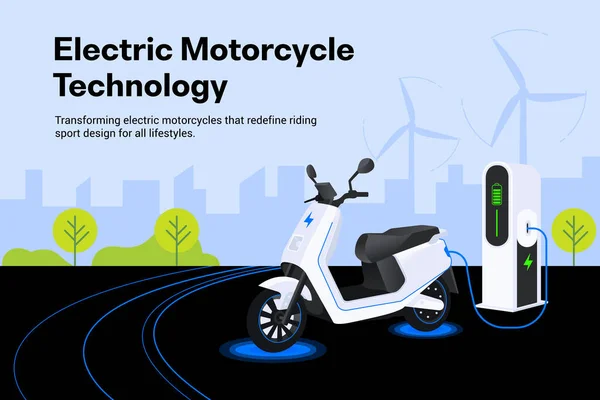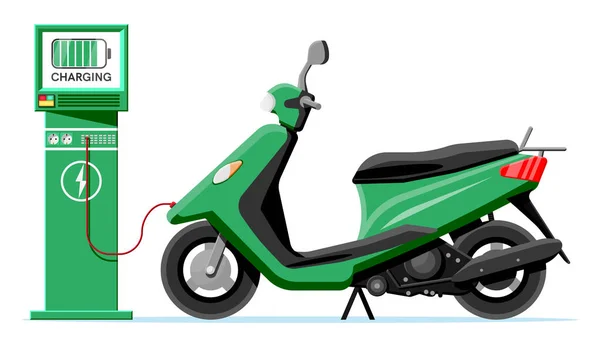The electric vehicles charging industry in Kenya is rapidly growing, and with it, the demand for reliable and efficient charging stations.
As an entrepreneur, setting up an electric vehicle charging business can be a lucrative venture, especially in areas with high demand for electric motorcycles and cars
In this blog post, we will give you the best guide on how to start a run a profitable EV charging system.
Expand Table of Contents
Market Research and Analysis
Before setting up your electric motorbike charging business, it is essential to conduct thorough market research and analysis. This will help you identify the demand for electric vehicles charging in your area, analyze your competitors, and understand your target market.
Read Next: Is Bodaboda Business In Kenya Really Profitable?
Identify Demand
Research the number of electric vehicles charging stations, EVs in your region on the road in your area and the number of charging stations available. This will give you an idea of the demand for charging services and help you identify potential locations for your charging stations.
Competitor Analysis
Analyze your competitors, including their pricing, services, and customer base. This will help you differentiate your business and identify opportunities to improve.
Target Market
Identify your target market, including the demographics, income levels, and preferences of potential customers. This will help you tailor your services and marketing strategy to meet the needs of your target market.
Write your Business Plan
A solid business plan is essential for the success of your electric motorbike charging business. Your business plan should outline your business model, revenue streams, cost structure, and marketing strategy.
Business Model
Decide on your business model, such as offering charging services, supplying or repairing Portable EV Charger, selling electric motorcycles, or providing maintenance and repair services. Your business model should be based on your market research and analysis.
Diversify Revenue Streams
Identify potential revenue streams, including charging fees, sales of electric motorcycles, and maintenance and repair services. Your revenue streams should be aligned with your business model and target market.
Cost Structure
Estimate your costs, including the cost of setting up and maintaining charging stations, employee salaries, and marketing expenses. Your cost structure should be realistic and take into account any potential challenges you may face.
Setting Up your EV Charging Station in Kenya

Setting up charging stations is a crucial step in setting up your electric motorcycle charging business. Here are some tips to consider:
Location Selection
Choose strategic locations for your charging stations, such as along major highways, in urban areas, and near popular destinations. Your locations should be easily accessible and convenient for your customers.
Charging Infrastructure
Install high-quality charging infrastructure, including Level 1, Level 2, and DC Fast Charging stations. Your charging infrastructure should be reliable and efficient to ensure that your customers can charge their electric cars quickly and easily.
Safety Features
Ensure that your charging stations have necessary safety features, such as surge protectors and ground fault circuit interrupters. Your safety features should be designed to protect your customers and your business from potential risks.
Marketing and Promotion
Marketing and promotion are essential for the success of your electric vehicles charging business. Here are some tips to consider:
Marketing Strategy
Develop a marketing strategy that targets your identified market. This can include social media campaigns, print and digital advertising, and partnerships with local businesses.
Promotions
Offer promotions and discounts to attract customers and build brand awareness. Your promotions should be designed to incentivize your customers to use your services and recommend your business to others.
Customer Engagement
Engage with your customers through regular maintenance and repair services, and by collecting feedback to improve your services. Your customer engagement strategy should be designed to build trust and loyalty with your customers.
Operations and Management
Operations and management are critical components of your electric vehicles charging business. Here are some tips to consider:
Employee Training
Train your employees on the operation and maintenance of the charging stations, as well as customer service skills. Your employees should be knowledgeable and friendly to ensure that your customers receive excellent service.
Maintenance and Repair
Regularly maintain and repair your charging stations to ensure that they are always available and functioning properly. Your maintenance and repair strategy should be designed to minimize downtime and ensure that your customers can charge their electric boda bodas quickly and easily.
Customer Support
Provide excellent customer support by responding promptly to customer inquiries and resolving any issues that may arise. Your customer support strategy should be designed to build trust and loyalty with your customers.
Financial Planning
Financial planning is essential for the success of your electric vehicles charging business. Here are some tips to consider:
Start-up Costs
Estimate your start-up costs, including the cost of setting up and maintaining charging stations, employee salaries, and marketing expenses. Your start-up costs should be realistic and take into account any potential challenges you may face.
Ongoing Expenses
Estimate your ongoing expenses, including the cost of maintaining and repairing charging stations, employee salaries, and marketing expenses. Your ongoing expenses should be designed to minimize costs and maximize profits.
Revenue Projections
Project your revenue based on your business plan and market research. Your revenue projections should be realistic and take into account any potential challenges you may face.
Compliance and Regulations
Compliance and regulations are critical components of your electric vehicles charging business. Here are some tips to consider:
Regulatory Compliance
Ensure that your business complies with all relevant regulations, including those related to electricity, safety, and environmental impact. Your regulatory compliance strategy should be designed to minimize risks and ensure that your business operates legally and ethically.
Permits and Licenses
Obtain necessary permits and licenses to operate your business. Your permits and licenses should be designed to ensure that your business operates legally and ethically.
Read Next; What you need to know about Electric Boda bodas in Kenya.
In conclusion
setting up an electric vehicles charging business requires careful planning and execution. By following the tips outlined in this blog post, you can set up a successful electric boda boda charging business that meets the needs of your customers and generates a profit. Remember to conduct thorough market research and analysis, develop a solid business plan, set up high-quality charging stations, and provide excellent customer service to ensure the success of your business.
Expand to See How Profitable is EV Charging Business
| Line Item | Amount (KES) |
|---|---|
| Revenue | |
| Charging Fees | 150,000 |
| Total Revenue | 150,000 |
| Cost of Goods Sold | |
| Electricity Costs | 20,000 |
| Battery Swap Costs | 30,000 |
| Total Cost of Goods Sold | 50,000 |
| Gross Profit | 100,000 |
| Operating Expenses | |
| Rent for Charging Stations | 20,000 |
| Maintenance and Repairs | 10,000 |
| Employee Salaries | 30,000 |
| Marketing and Advertising | 5,000 |
| Other Operating Expenses | 5,000 |
| Total Operating Expenses | 70,000 |
| Net Income | 30,000 |
Assumptions:
- The business has 10 charging stations in Nairobi.
- Each station charges an average of 50 boda boda riders per day, with an average charging fee of KES 30 per charge.
- The business operates 30 days per month.
- Electricity costs are estimated at KES 2,000 per station per month.
- Battery swap costs are estimated at KES 3,000 per station per month.
- Rent for the charging stations is estimated at KES 2,000 per station per month.
- Maintenance and repairs are estimated at KES 1,000 per station per month.
- The business employs 3 full-time employees at an average salary of KES 10,000 per month.
- Marketing and advertising expenses are estimated at KES 5,000 per month.
- Other operating expenses, such as insurance and administrative costs, are estimated at KES 5,000 per month.
This income statement provides a high-level overview of the potential financial performance of an electric vehicles charging business in Kenya. The actual results may vary depending on the specific circumstances and assumptions of the business.



